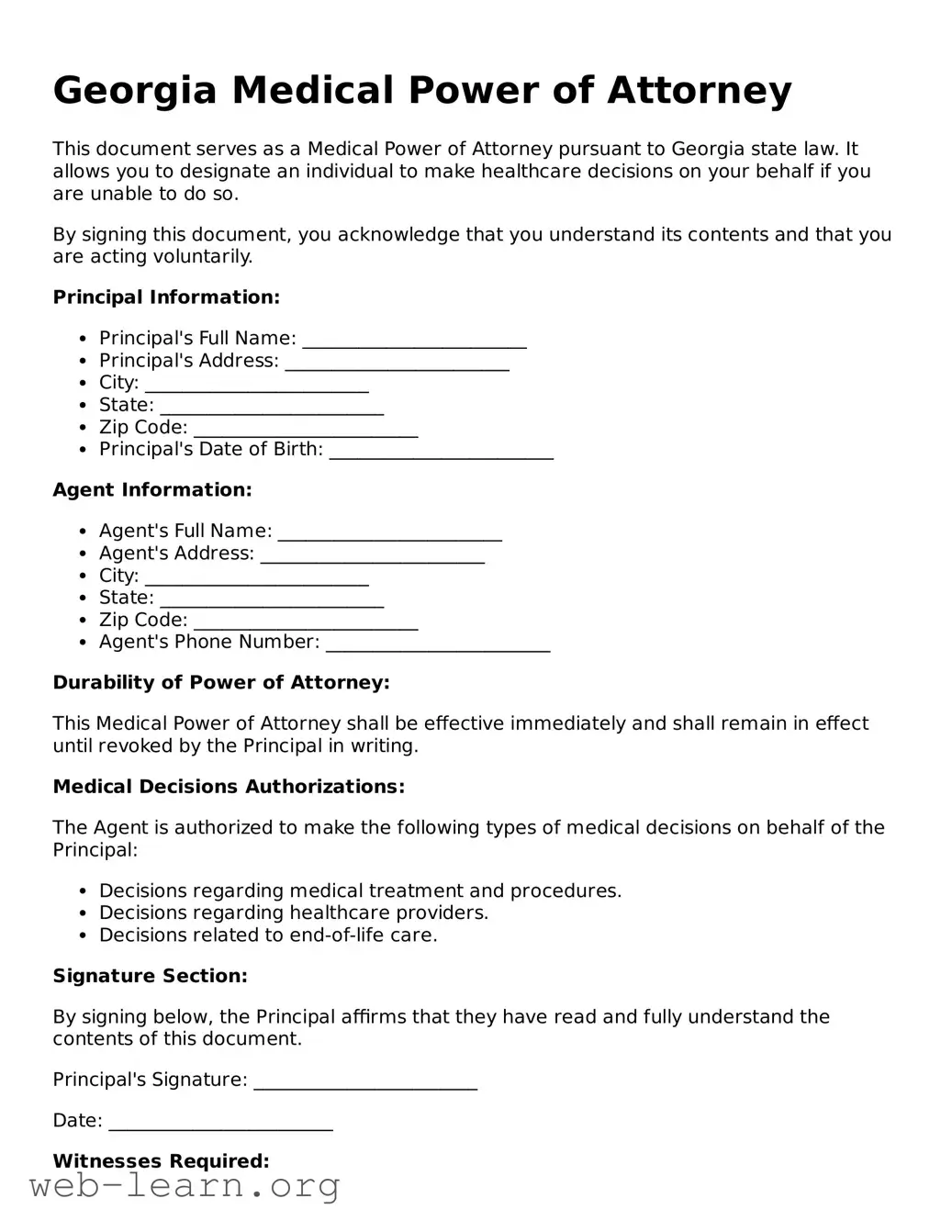Georgia Medical Power of Attorney
This document serves as a Medical Power of Attorney pursuant to Georgia state law. It allows you to designate an individual to make healthcare decisions on your behalf if you are unable to do so.
By signing this document, you acknowledge that you understand its contents and that you are acting voluntarily.
Principal Information:
- Principal's Full Name: ________________________
- Principal's Address: ________________________
- City: ________________________
- State: ________________________
- Zip Code: ________________________
- Principal's Date of Birth: ________________________
Agent Information:
- Agent's Full Name: ________________________
- Agent's Address: ________________________
- City: ________________________
- State: ________________________
- Zip Code: ________________________
- Agent's Phone Number: ________________________
Durability of Power of Attorney:
This Medical Power of Attorney shall be effective immediately and shall remain in effect until revoked by the Principal in writing.
Medical Decisions Authorizations:
The Agent is authorized to make the following types of medical decisions on behalf of the Principal:
- Decisions regarding medical treatment and procedures.
- Decisions regarding healthcare providers.
- Decisions related to end-of-life care.
Signature Section:
By signing below, the Principal affirms that they have read and fully understand the contents of this document.
Principal's Signature: ________________________
Date: ________________________
Witnesses Required:
- Witness 1 Signature: ________________________ Date: ________________________
- Witness 2 Signature: ________________________ Date: ________________________
This document can be revoked in writing at any time while the Principal is still capable of making their own healthcare decisions. Witnesses should not be designated as the Agent.
